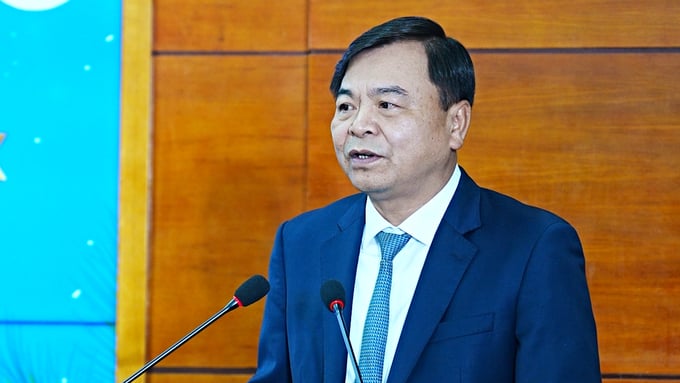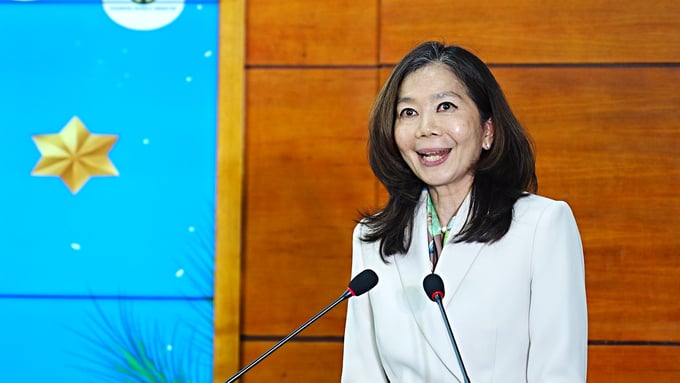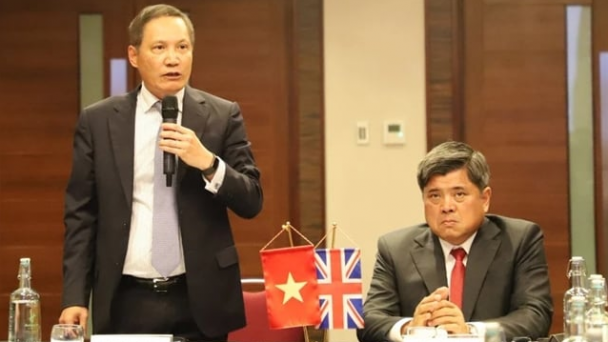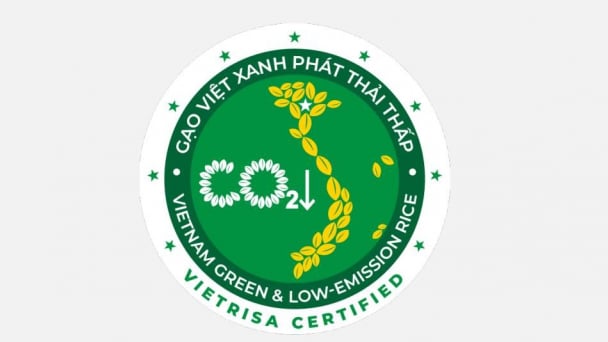May 15, 2025 | 23:13 GMT +7
May 15, 2025 | 23:13 GMT +7
Hotline: 0913.378.918
May 15, 2025 | 23:13 GMT +7
Hotline: 0913.378.918
On the afternoon of December 10, the year-end review meeting of the Disaster Risk Reduction Partnership was co-chaired by Deputy Minister of Agriculture and Rural Development Nguyen Hoang Hiep and Ms. Pauline Tamesis, the UN Resident Coordinator in Vietnam.
The meeting aimed to summarize the results achieved in joint efforts to mitigate and address the aftermath of natural disasters, including the response and relief efforts following typhoon Yagi.

Deputy Minister Nguyen Hoang Hiep delivered the opening speech at the year-end review meeting of the Disaster Risk Reduction Partnership. Photo: Kieu Chi.
First, Deputy Minister Nguyen Hoang Hiep acknowledged the humanitarian response efforts: "We have faced the challenges brought by Typhoon Yagi with determination, courage, and compassion. While Typhoon No. 3 had not yet passed and the floodwaters had not receded, the Ministry of Agriculture and Rural Development received many expressions of concern, support commitments, and quick action from the international community, including embassies, foreign government agencies, and international NGOs. These included shipments of international aid, bringing food, clean water, and essential supplies to the local."
The multidisciplinary assessment report is expected to help partners develop long-term and comprehensive recovery plans for vulnerable areas. This will not only save resources but also ensure effective coordination, with the goal of "building back better" after the disaster.

The United Nations representative in Vietnam recognizes the efforts of the government, ministries, local authorities, and partners in contributing to and committing to sustained efforts in providing timely support to the people. Photo: Quynh Anh.
As co-chair of the Disaster Risk Reduction Partnership (DRRP), UN Resident Coordinator, Ms. Pauline Tamesis also emphasized the importance of collective action: "Typhoon Yagi was a test of our resilience, and it also demonstrated the efforts of the Government, ministries, localities, and partners in contributing and committing to timely and sustained support for the people. Now, we must turn plans into action, ensuring that recovery efforts are not just about aid, but also pave the way for a more sustainable and resilient future."
Under the coordination of the Ministry of Agriculture and Rural Development through the Department of Dyke Management and Disaster Prevention, the multi-sectoral assessment based on collected information has helped create a necessary bridge, one of the foundations for developing comprehensive recovery plans for affected sectors. Many activities have been recognized in the process of support, and numerous stories have demonstrated the varying resilience capacities of localities.
A key highlight of the conference was the summary of the results of the multi-sectoral recovery assessment after Typhoon Yagi (VMSA). This assessment is the result of coordination between ministries, UN agencies, the EU, JICA, ADB, HAI, SCV, CRS, and other development partners.
The assessment was carried out across 14 provinces representing coastal, midland, and mountainous areas, including Bac Giang, Bac Kan, Cao Bang, Dien Bien, Ha Giang, Lai Chau, Lang Son, Lao Cai, Thai Nguyen, Tuyen Quang, Yen Bai, Quang Ninh, Hai Phong, and Phu Tho.
The assessment report analyzed the damages, losses, and recovery needs of 15 key sectors, including agriculture, education, health, nutrition, culture and tourism, industry and commerce, water supply, housing, and sanitation. The sectors most severely affected were housing and community infrastructure, agriculture, industry and commerce, culture, tourism, and transportation.
The assessment also serves as an important forum for coordinating support activities based on comprehensive information. The findings of the report not only guide early recovery planning but also provide the necessary data to "build back better," ensuring that the infrastructure and livelihoods of communities being rebuilt will be more resilient.
At the meeting, Deputy Minister of Agriculture and Rural Development Nguyen Hoang Hiep awarded Certificates of Merit from the Minister of Agriculture and Rural Development to six international organizations that have made outstanding contributions in disaster prevention, response, and recovery efforts following Typhoon No. 3 - Yagi, contributing to the development of agriculture and rural areas in Vietnam. The recipients included the UN Resident Coordinator's Office in Vietnam (UNRCO), the Asian Development Bank (ADB), the United Nations Development Programme (UNDP), the United Nations Children's Fund (UNICEF), the Food and Agriculture Organization of the United Nations (FAO), and Samaritan's Purse.
Translated by Kieu Chi

(VAN) Veterinary training should focus on quality, not just quantity. Veterinarians also need more options to pursue specialized training.

(VAN) The veterinary industry needs to be viewed objectively and further invested in to properly demonstrate its role and importance in the new context.

(VAN) The number of veterinarians graduating each year is not enough to meet actual needs, hence a difficult problem for the growing livestock industry.

(VAN) The strategic partnership between Cambodia, the Philippines, Vietnam, and CGIAR ensures that innovative solutions effectively address national priorities for food system development.

(VAN) This was affirmed by the UK Minister of State at the Department for Environment, Food and Rural Affairs during a working session with Deputy Minister Tran Thanh Nam on May 13.

(VAN) On May 13, the Ministry of Agriculture and Environment, in coordination with the Embassy of Vietnam in the United Kingdom, organized a seminar titled 'Connecting trade in Vietnam-UK agricultural, forestry, and fishery products'.

(VAN) The launch of the Vietnam green and low-emission rice brand is a positive signal for both businesses and farmers, marking readiness to reach new heights in the global market.